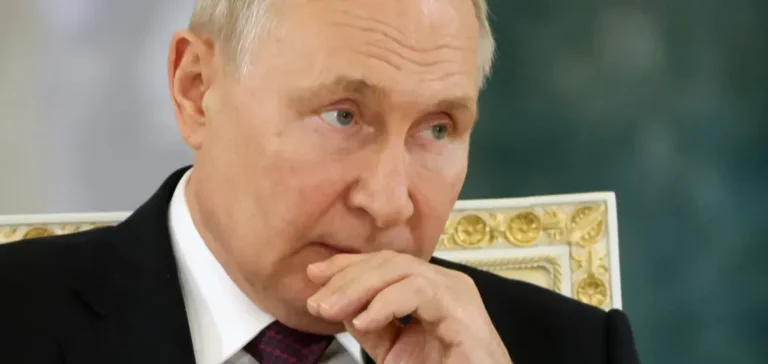The President of the Russian Federation, Vladimir Putin, condemned the interception of a tanker by France off its coast, accusing Paris of carrying out an unfounded seizure in international waters. The vessel in question is suspected of being part of the shadow fleet used by Russia to circumvent European sanctions on crude oil.
During a forum held in Sochi, Vladimir Putin stated that the action taken by the French authorities amounted to “piracy”. According to his remarks, “the tanker was seized in neutral waters, without any basis.” He also noted that the ship was sailing under the flag of a third country with an international crew, and said he was unsure whether there was any formal link between the vessel and Russia.
The Russian shadow fleet targeted by the European Union
The seizure has reignited debate over how to enforce the European oil embargo against Russia, particularly in light of a fleet estimated to include several hundred vessels operating covertly. These ships, often registered under flags of convenience, enable Moscow to continue exporting hydrocarbons by bypassing restrictions imposed since the start of the conflict in Ukraine.
French President Emmanuel Macron stated that the operation conducted by the national navy was part of a European effort to strengthen maritime controls. He called for the intensification of the “obstruction policy” against vessels suspected of involvement in these evasion networks.
Geopolitical and economic tensions continue
Control over maritime circulation of Russian hydrocarbons remains a major strategic issue for the European Union, amid volatile oil markets. Since the Group of Seven (G7) countries imposed a price cap on Russian crude, Russia has reportedly reorganised its export logistics through alternative routes, including offshore transshipments beyond Western jurisdiction.
According to French authorities, the seizure operation was conducted in accordance with international law. No military cargo was found aboard the vessel, whose final destination has not been disclosed.
Vladimir Putin also suggested that the interception might be aimed at diverting public attention from domestic political challenges in France. He stated: “Apparently, they were looking for something, military goods, drones… But there is nothing like that there.”






















